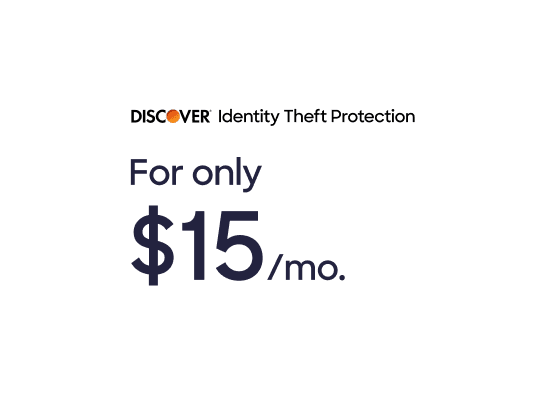At Discover, credit card fraud and account security are important. Below, find answers to frequently asked questions about security measures in place that help us monitor and protect your credit card information from fraud.

Credit Card Fraud and Account Protection
Learn how Discover monitors your account for fraud.
3 min read
Last Updated: October 9, 2024
Next steps

See if you're pre-approved

View all Discover credit cards
See rates, rewards and other info
You may also be interested in
Was this article helpful?
Was this article helpful?




